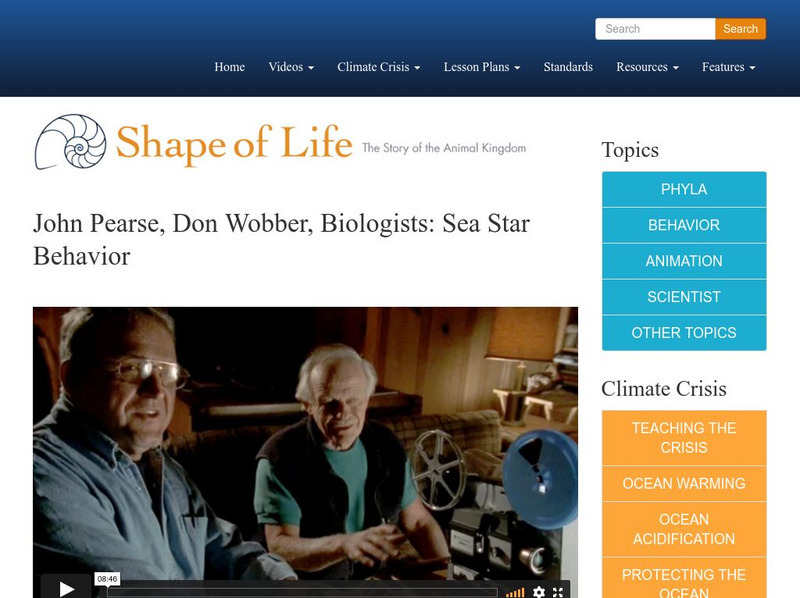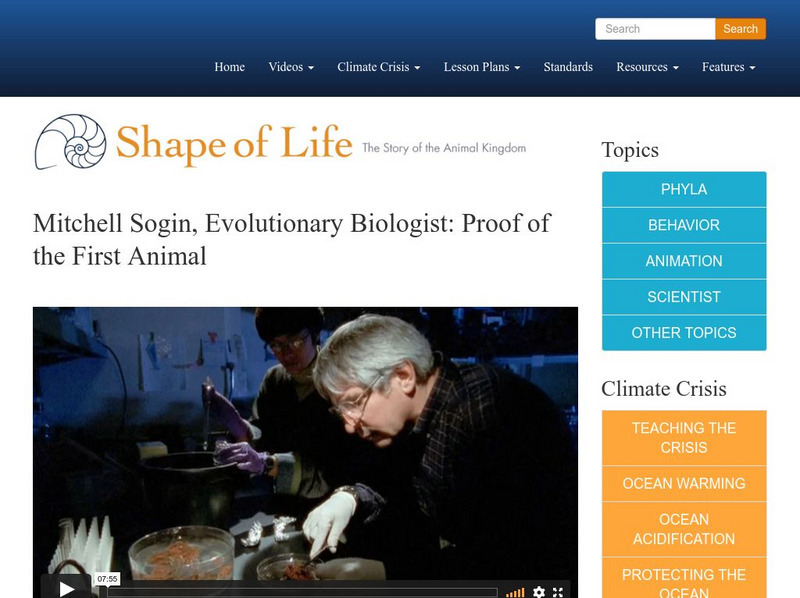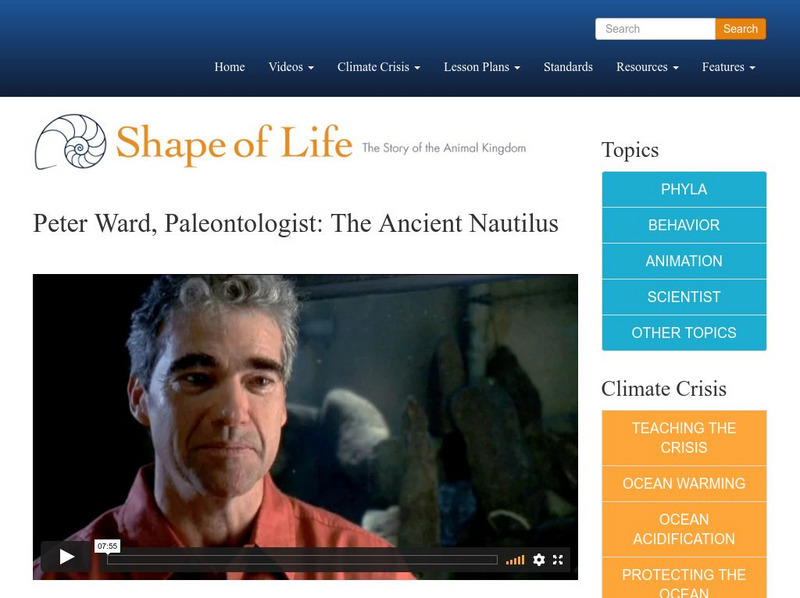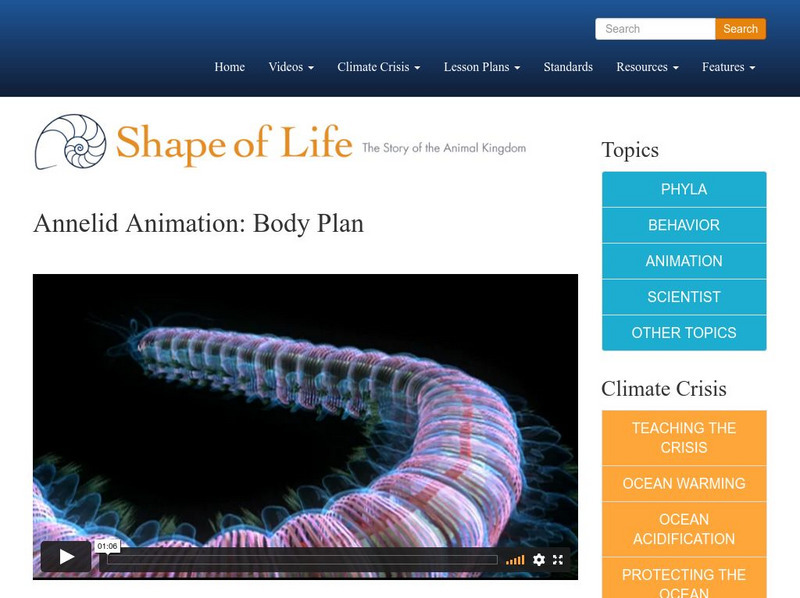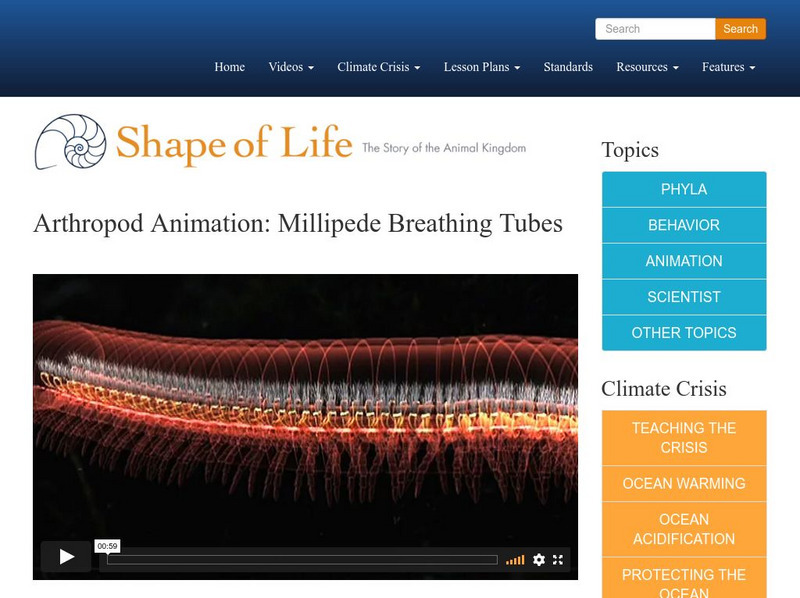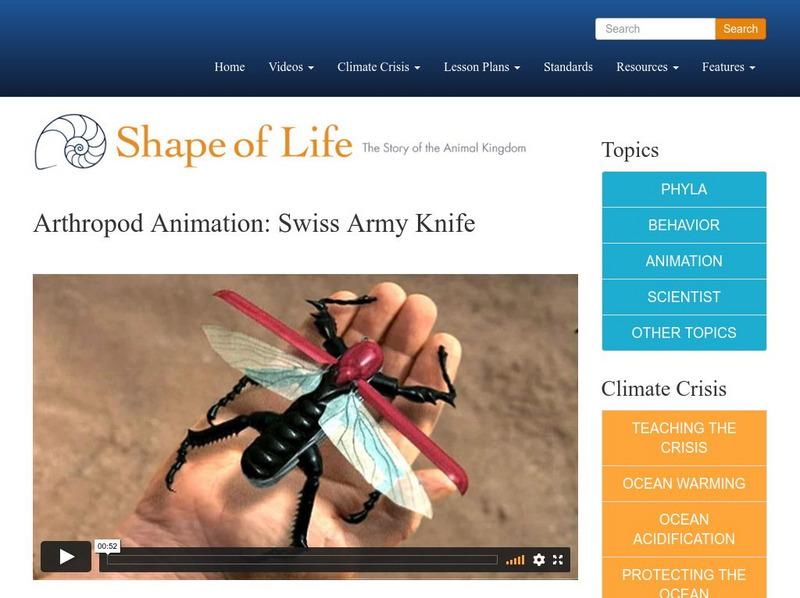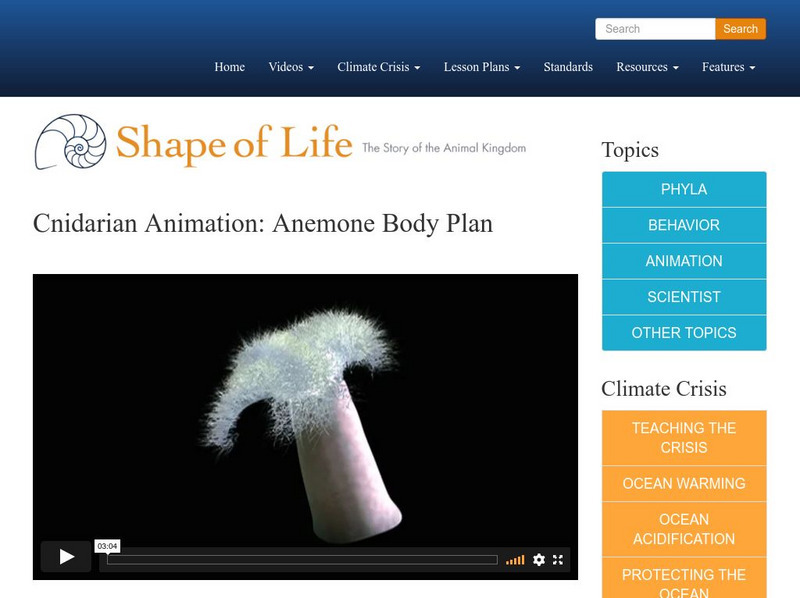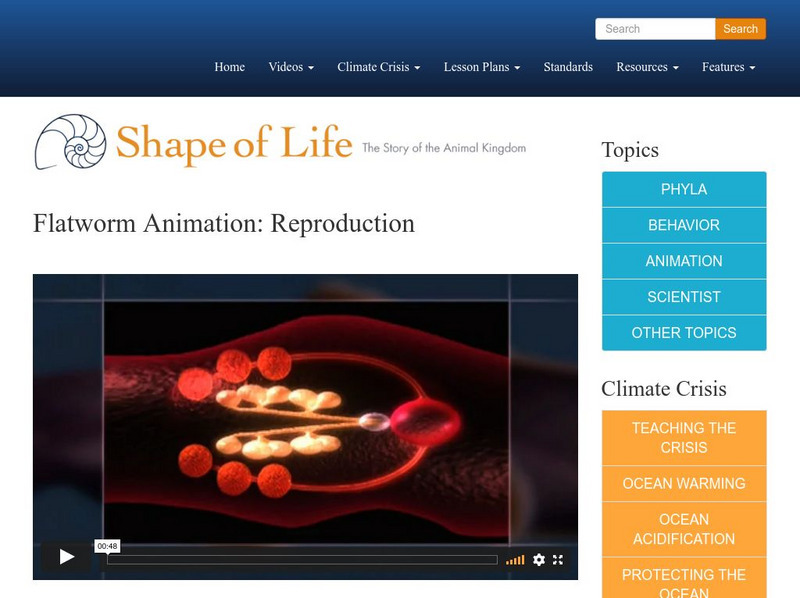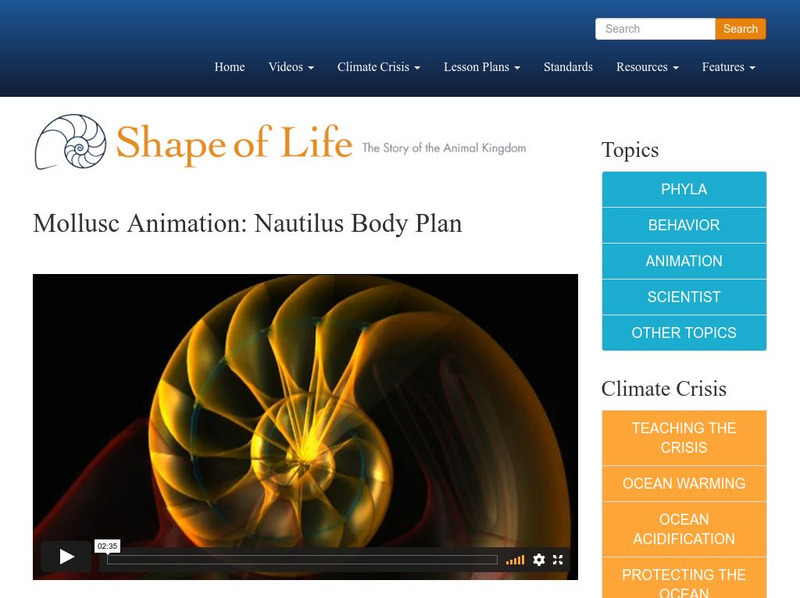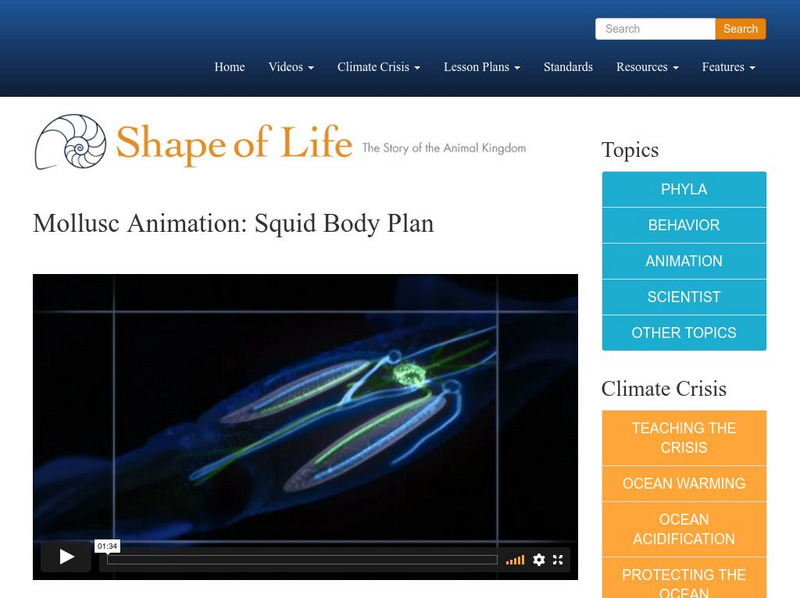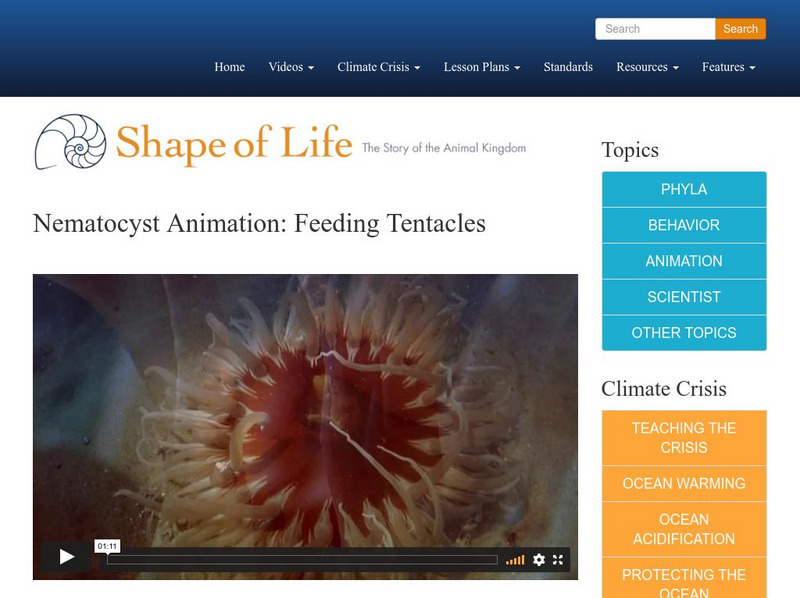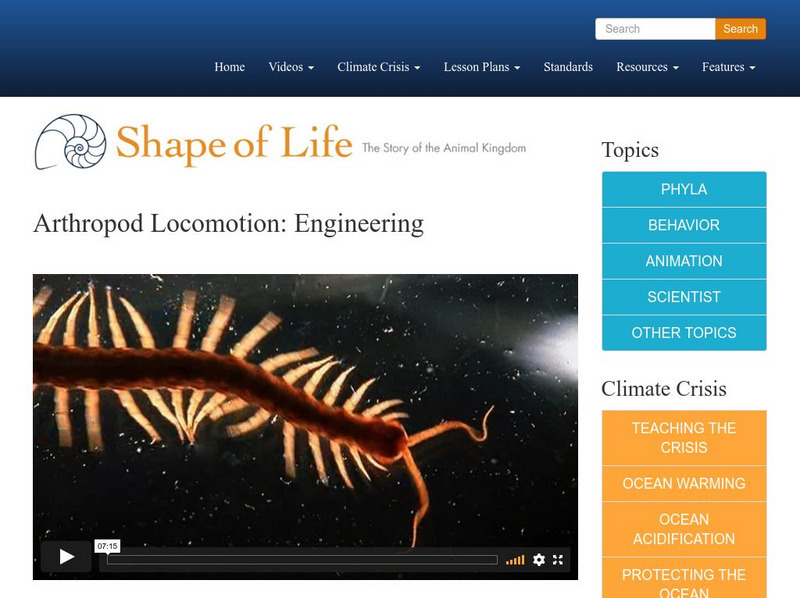Hi, what do you want to do?
Sea Studios Foundation
Shape of Life: John Pearse, Don Wobber, Biologists: Sea Star Behavior
John Pearse studied sea stars in the intertidal for a long time and assumed they had no social interactions. Then he met long-time diver Don Wobber who has a passion for sea stars. He wondered about the sea stars poses revealed in his...
Sea Studios Foundation
Shape of Life: Matt Scott, Geneticist: How Genes Build Bodies
Matt Scott investigates how genes gave rise to new body plans in this video. His model is the fruit fly and the genes that control how the body is built. Geneticists, like Scott, often look at mutations to find their answers. Scott shows...
Sea Studios Foundation
Shape of Life: Mitchell Sogin, Evolutionary Biologist: Proof of the First Animal
Join an adventure with an evolutionary biologist, Sogin as he searched the genetic codes of many organisms to discover which gave rise to all the others. He investigated the genes of the sponge starting with gene sequencing to find the...
Sea Studios Foundation
Shape of Life: Peter Ward, Paleontologist: The Ancient Nautilus
Watch the adventures of Peter Ward in this video. As a paleontologist Peter Ward studied fossil nautiloids for years before he went to New Caledonia to see and trap living nautiloids. He's interested in the adaptations that allowed this...
Sea Studios Foundation
Shape of Life: Annelid Animation: Body Plan
Investigate an annelids' body plan in this video. Annelids have segmented bodies with powerful muscles, a one-way gut that runs through the body, a circulatory system and nervous system. [1:06]
Sea Studios Foundation
Shape of Life: Arthropod Animation: Millipede Breathing Tubes
Learn about millipede breathing tubes in this video. Book gills are flaps located inside the scorpions body that transfer oxygen to the blood. [0:59]
Sea Studios Foundation
Shape of Life: Arthropod Animation: Scorpion Book Gills
Book gills are flaps located inside the scorpions body that transfer oxygen to the blood. [1:05]
Sea Studios Foundation
Shape of Life: Arthropod Animation: Swiss Army Knife
The blades of the Swiss army knife become the claws, legs, antennae and wings that arthropods evolved to survive on land. [0:52]
Sea Studios Foundation
Shape of Life: Cnidarian Animation: Anenome Body Plan
Cnidarians were the first animals to have a stomach, nerves and muscles. The anemone pulls water into its stomach to give its body rigidity so its nerves and muscles can work to create behavior. All animals have inherited the same basic...
Sea Studios Foundation
Shape of Life: Cnidarian Animation: Polyp and Medusa
Cnidarians come in two basic shapes. An anemone is the polyp shape. If the polyp shape is turned upside down, it becomes the medusa shape of the jellyfish. [1:16]
Sea Studios Foundation
Shape of Life: Echinoderm Animation: Five Part Symmetry
The five-part symmetry of echinoderms is demonstrated, as the five-armed starfish is morphed into an urchin that is then morphed into a sea cucumber. [1:42]
Sea Studios Foundation
Shape of Life: Echinoderm Animation: Sea Star Body Plan
We learn how a sea star's skeleton works and then travel inside the sea star to see the nerve ring and how the hydraulic system of tube feet works. [3:52]
Sea Studios Foundation
Shape of Life: Flatworm Animation: Reproduction
Flatworms are hermaphroditic with both male and female reproductive organs. They also have internal fertilization. See Penis Fencing (Behavior Sequences) to learn how the sperm gets delivered. [0:48]
Sea Studios Foundation
Shape of Life: Flatworm Animation: Tapeworm
A video exploring tapeworms. See how without eyes or mouths tapeworms latch to the inside of the intestine. Also learn that they produce sperm and eggs by the billions. [1:39]
Sea Studios Foundation
Shape of Life: Marine Arthropod Animation: Body Plan
Animation of the lobster's jointed leg that shows how muscles and tendons work to move the joint. A separate animation shows how the jointed appendages and body segments can easily evolve into new forms. [1:41]
Sea Studios Foundation
Shape of Life: Mollusc Animation: Abalone
The abalone demonstrates the basic body plan of molluscs. A foot is used for movement. A radula is a scraping tongue, and a mantle secretes the shell. [1:22]
Sea Studios Foundation
Shape of Life: Mollusc Animation: Nautilus Body Plan
Numerous tentacles, a funnel that evolved from the foot, a mantle that secretes the shell, and a pair of jaws with a radula- these all clearly show the nautilus mollusc design. Spiraling through the shell, a tube called the siphuncle...
Sea Studios Foundation
Shape of Life: Mollusc Animation: Shell Repair
The mantle deposits calcium into a protein matrix to make the shell. The inner crystalline structure prevents cracks from breaking the shell, and the mantle continually repairs the shell from the inside. [1:32]
Sea Studios Foundation
Shape of Life: Mollusc Animation: Squid Body Plan
The squid's body plan has developed for fast action. The shell is reduced to a thin "pen." The mantle wall has elastic fibers that intensify the jet propulsion. Giant nerves allow a fast reflex and three hearts pump oxygen to the gills....
Sea Studios Foundation
Shape of Life: Nematocyst Animation: Feeding Tentacles
An anemone's tentacles are lined with nematocysts that shoot out a microscopic barbed harpoon to catch prey. [1:11]
Sea Studios Foundation
Shape of Life: Nematocyst Animation: Fighting Tentacles
Two anemones fight for territory using special sacs (acrorhagi) full of nematocysts to inflict damage. [1:48]
Sea Studios Foundation
Shape of Life: Sponge Animation: Spicules
Spicules are microscopic structures of hard crystal material with fantastic shapes unique to the different species of sponge. They are part of the skeleton that helps give the sponge its shape. [1:59]
Sea Studios Foundation
Shape of Life: Sponge Animation: Wild Ride Through a Sponge
Along with other microscopic organisms (dinoflagellates, diatoms, bacteria, etc.), we become a tiny particle and are pulled through the canals of a sponge. Along the way we learn that sponge cells catch food and make spicules(microscopic...
Sea Studios Foundation
Shape of Life: Arthropod Locomotion: Engineering
Robert Full is interested in the biomechanics of arthropod movement. Arthropods move low to the ground using their legs in a tripod fashion, which is inherently stable. Their skeleton provides local control over movement. But the secret...





